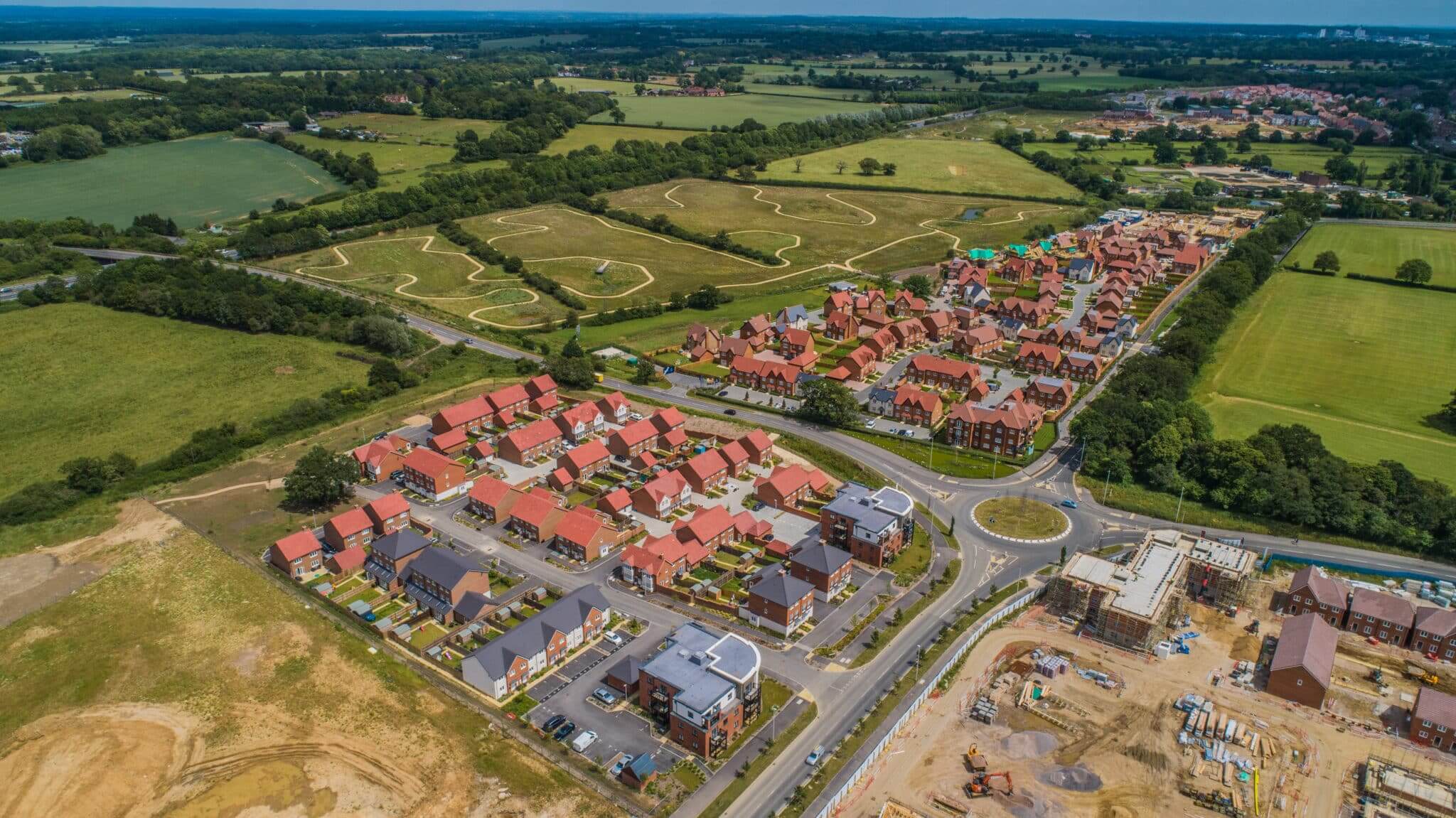Regenerative Thinking is a regular column for Wicked Leeks by Nathan Einbinder, programme lead at Schumacher College, on food, farming and social change.
Getting to the root of the housing crisis is complicated business. Take financial deregulation, for example, which dumped trillions of pounds into the market, effectively turning housing (and land) into one of the most sought after commodities in the world.
Not unlike what’s happened with food, we took a basic human right and necessity and unleashed it to the whims of the free market, to be betted and profited on at will.
The consequences have been numerous, self-reinforcing, and equally complex. Displacement is a key feature. As households flush with cash from a sale in London head to the countryside, they price out locals and push them to the margin. At the same time, foreign investors hoard properties like unused grain in a silo, waiting for the next price jump to sell. And as billions are made in transaction profits, second or even third homes are bought and lie mostly vacant in areas with so-called inventory shortages, like Devon and Cornwall.
And yet, despite all we know about how price swings operate, and their independence from true supply and demand, there’s a continuous belief that the solution is to build more homes. Millions of them, in fact, with limited discussion over the permanent impacts they have on existing communities and the environment, let alone whether it will truly bring about affordability to the masses.
I’m no economist, but from all the research I’ve done I have yet to find evidence that building new housing estates, which are extremely expensive (think about the cost of land, labour, and materials) and directed largely by corporations with tight profit margins, would equate to affordable, let alone quality, dwellings for all.
From my perspective – and firsthand experience growing up in southern California, the epicenter of suburbia – corporate housing projects represent another form of land grab, colonising invaluable greenspace and potentially rich farmland (surely what was once commons) and transforming it into monotonous, imagination-less, nature-destroying sprawl.
They allow us to overlook the inequalities that characterise our society and perpetuate a simplistic approach to resolving the problem. They keep us from looking at the real issue, which is not one of scarcity, rather unequal distribution and inefficient use of space.
But to get any advancement towards net zero and equality in society (the two are inseparable, from my point of view), we must begin by restricting the power capital has on developing communities and land.
A regenerative housing approach
So how do we resolve such a complicated beast? If there was any political will and foresight, we’d have serious disincentives and restrictions on second homes (including Airbnbs) and speculative buying, especially in regions most affected. There would be a concerted effort, through local government and citizen groups, to equalise the imbalances that prevails in many communities.
As far as development, we need new laws and incentives that reward investment into sites that already exist. I’m talking about the hundreds of thousands of unoccupied and derelict buildings in this country, including brownfield sites, that developers would just as soon bulldoze rather than renovate in a non-traditional way that considers the finite resources of our environment.
Drawing from regenerative principles and agroecology, we can envision a housing paradigm that considers soil, air, water, and wellbeing: projects that foster truly sustainable livelihoods; integrating local food and energy production, and transport. It would be a stark contrast to the high consumption, high carbon footprint lifestyles encouraged by suburbia.
But to get anywhere with this, not to mention any advancement towards net zero and equality in society (the two are inseparable, from my point of view), we must begin by restricting the power capital has on developing communities, and land.
We must shift our basic human rights out of the free market and reenact true democracy; bringing it back to local needs and governance. And above all, we’ll need a change in attitude, and beliefs, into what’s possible.










Nathan for Prime Minister !